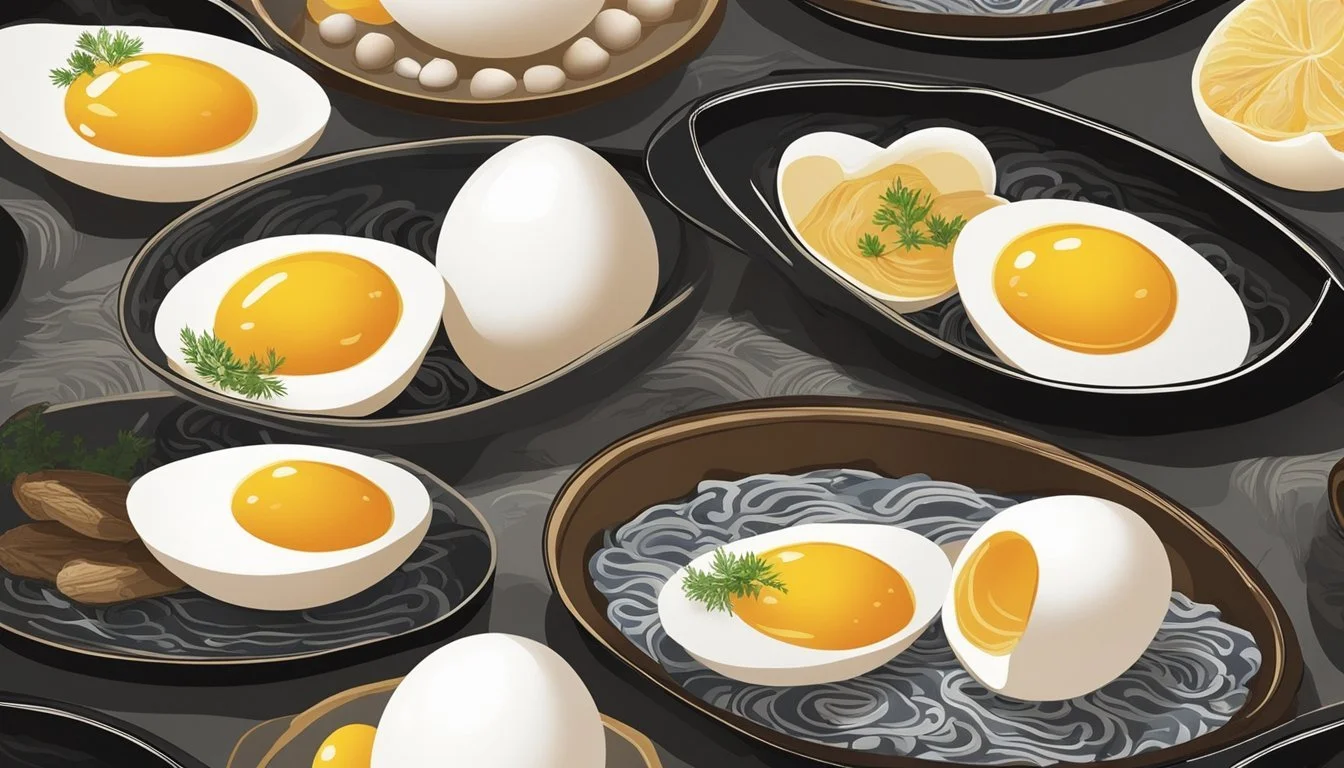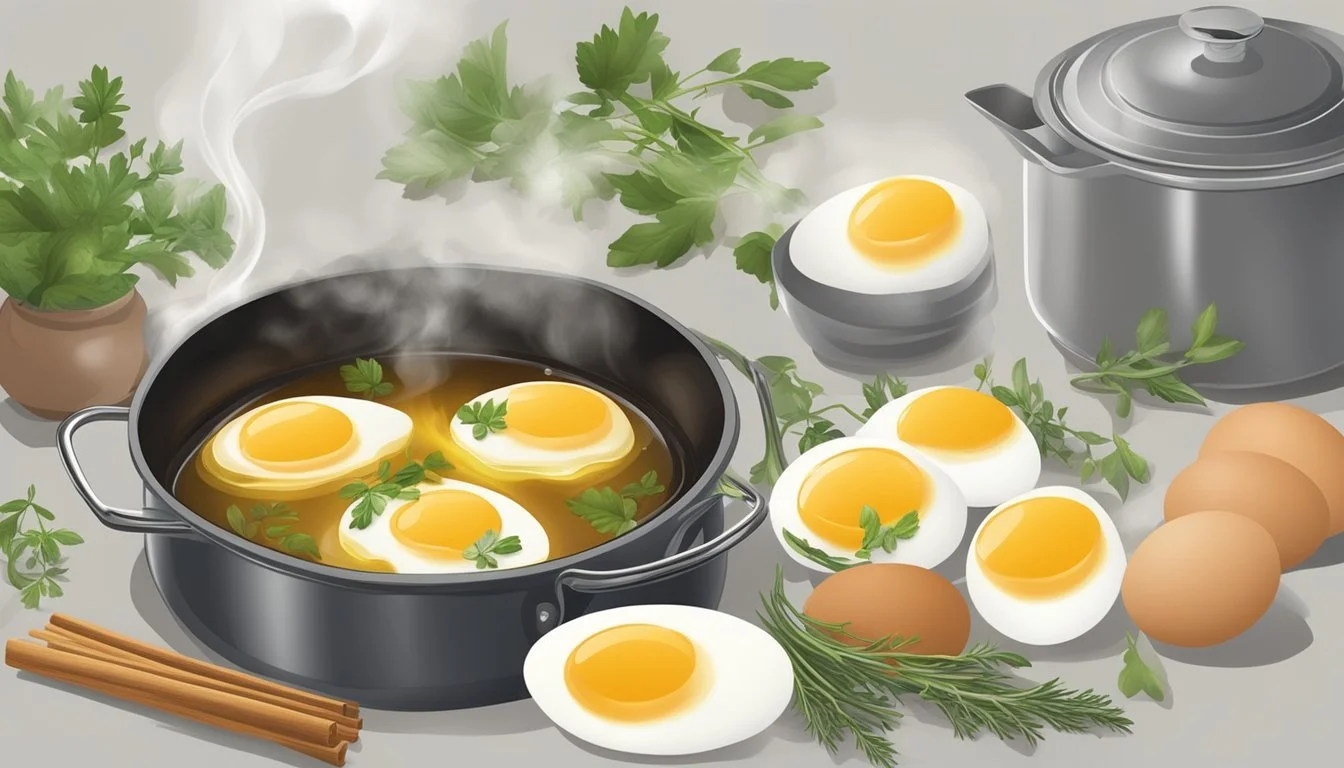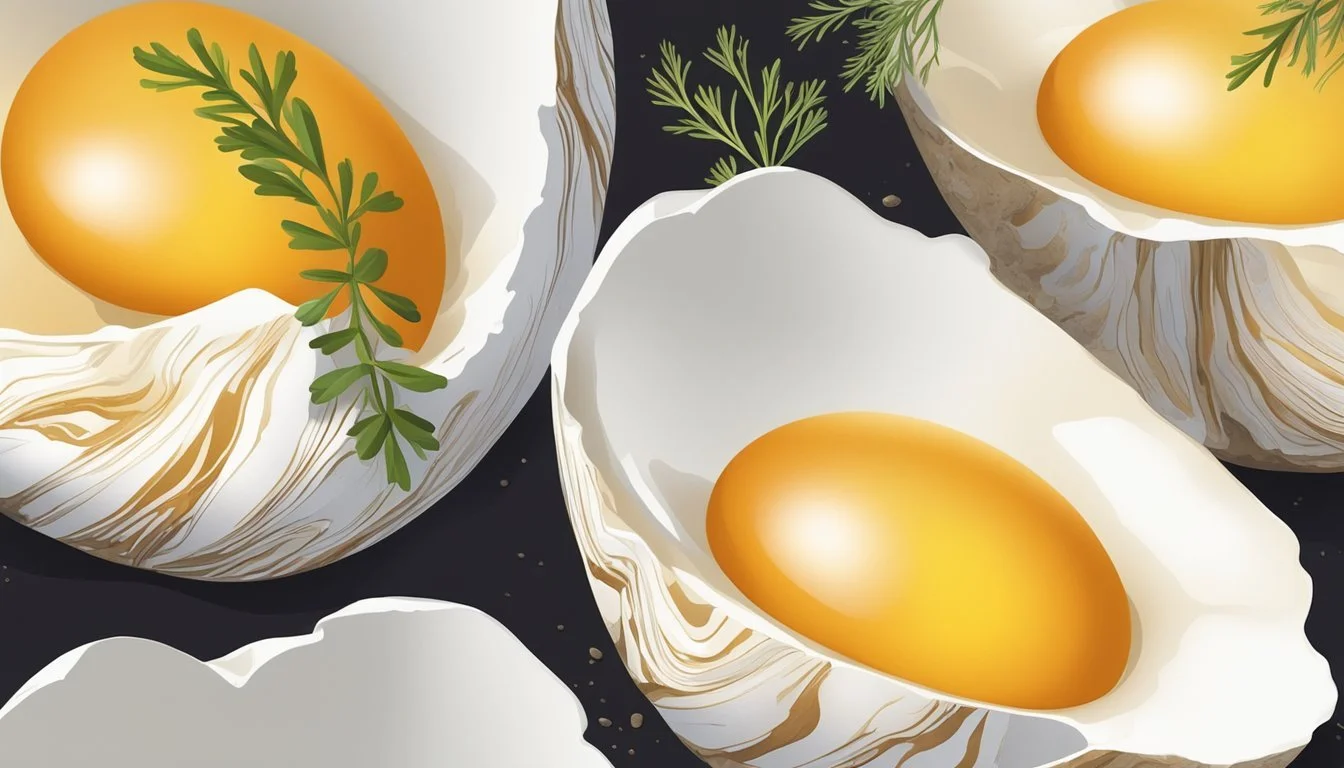Tong Zi Dan Unveiling the Secrets of China’s Virgin Boy Eggs Tradition
In the city of Dongyang, Zhejiang province, China, a traditional delicacy known as Tong Zi Dan, or Virgin Boy Eggs, presents a culinary practice that dates back centuries. Every spring, this local specialty makes its way into the markets and onto the tables of residents, embodying a custom that is as much about cultural heritage as it is about taste. These eggs are not your average fare; instead, they undergo a cooking process that involves steeping in the urine of young boys, typically under the age of ten, believed to impart unique health benefits.
The origins and health claims associated with Virgin Boy Eggs hold a place in traditional Chinese medicine. Advocates for the practice argue that the eggs have properties that can help treat yin deficiency, prevent heat stroke, and improve circulation, among other benefits. Though to those unacquainted with the tradition it may seem unconventional, the residents of Dongyang consider these eggs a springtime staple. The labor-intensive process includes collecting urine from local schools and boiling the eggs in it, then letting them soak and absorb the flavors.
As the tradition endures, so does the debate over the health implications and the palates of outsiders who encounter this ancient dietary custom. For the people of Dongyang, however, the practice of making Tong Zi Dan continues to be a point of local pride and a link to their historical roots. While modern medicine may question the validity of the health claims, for the residents and connoisseurs, Virgin Boy Eggs remain a cherished symbol of the region's unique culinary heritage.
Historical Context and Cultural Significance
This section delves into the unique facets of Tong Zi Dan's historical roots and its cultural standing within the Chinese tradition, particularly its recognition as an intangible cultural heritage.
Origin and Tradition
Tong Zi Dan, or Virgin Boy Eggs, is a practice deeply embedded in the local traditions of Dongyang, a city in China's Zhejiang province. This culinary tradition involves steeping hard-boiled eggs in the urine of prepubescent boys. While the exact origin of this practice is not clearly recorded, it is understood that these eggs have been local residents' dietary staple for centuries and are highly regarded during the spring season.
The tradition dictates that the urine should be collected from boys under ten years old. Local residents claim that consuming these eggs promotes better health and can prevent heat stroke among other benefits. Such beliefs echo a common theme in Chinese cultural heritage, where specific foods are imbued with medicinal properties.
Tong Zi Dan as Intangible Cultural Heritage
In Dongyang, Tong Zi Dan is more than a food item; it's a cultural emblem. Recognized officially as part of the intangible cultural heritage of the region, these eggs represent a tradition cherished by the community and a practice they strive to preserve. The intangible cultural heritage includes practices, expressions, and knowledge that are passed down through generations and form a part of their collective identity.
The recognition of Tong Zi Dan as intangible cultural heritage is a testament to its significance among the local residents of Dongyang and elevates it as a cultural cornerstone in Zhejiang, China. It also highlights the city's dedication to maintaining the culinary craft and acknowledging the role such traditions play in the local community and the broader Chinese cultural tapestry.
Preparation of Tong Zi Dan
In the preparation of Tong Zi Dan, a traditional Chinese delicacy, two critical stages are involved: the collection of the distinctive primary ingredient, boy's urine, and the meticulous boiling and soaking of the eggs in this unique liquid.
Collection of Key Ingredient
The key ingredient for Tong Zi Dan is the urine of young boys, preferably under the age of ten. The collection process typically takes place in local elementary schools, where buckets are positioned for the boys to contribute. This urine is then gathered to be used in the cooking process, as it is believed to add distinctive flavors and health benefits to the boiled eggs.
Boiling and Soaking Process
The actual cooking begins with the boiling of eggs as one would for traditional hard-boiled eggs. Once the eggs are hard-boiled, the shells are cracked to allow the flavors to permeate. The eggs are then placed in a pot of urine, which is sometimes mixed with herbs to enhance the flavor. This mixture is brought to a boil, then simmered for hours. Following boiling, the eggs are soaked in the urine-herb mixture, allowing them to further absorb the unique flavors. It is the soaking process that finalizes the taste and is essential to creating the authentic Tong Zi Dan experience.
Health Claims and Medical Opinions
In the discussion of Tong Zi Dan, two contrasting perspectives emerge: traditional beliefs and the scrutiny of modern medicine. These perspectives are driven by cultural practices and scientific research, respectively.
Traditional Beliefs in Health Benefits
Traditional Chinese medicine posits that Tong Zi Dan holds various health benefits. It is commonly believed that these eggs can:
Decrease body heat: Consumption is thought to prevent heat stroke and internal body heat, particularly as the climate warms in spring.
Enhance blood circulation: Advocates claim that the nutrients or properties within can invigorate the body's circulatory system.
Boost energy levels: A surge in vitality and overall energy is another purported benefit.
Treat asthma and inflammation: Respiratory issues and bodily inflammation are ailments that are traditionally addressed with the consumption of these eggs.
Combat fungal infections and yin deficiency: These eggs are also trusted to help balance the body's yin, contributing to overall wellbeing.
Modern Medicine Perspective
Modern medicine's perspective, underpinned by medical research, doctors, and medical experts, typically challenges these traditional claims. From this standpoint:
Scientific validation of health benefits is lacking: There is a distinct absence of clinical studies to support the aforementioned health claims.
Sanitary concerns are raised: The use of young boys' urine raises significant sanitary issues, with modern medical professionals often questioning the safety of this practice.
Modern treatments exist for claimed benefits: Conditions like asthma, heat stroke, and inflammation have well-researched modern treatments that do not involve the use of such unconventional ingredients.
The divide between traditional practices and modern health standards reflects ongoing debates in the intersection of culture and science.
Culinary Details
The Virgin Boy Egg, a unique Chinese delicacy, provides an intriguing blend of taste and tradition. Originating from Dongyang, these eggs are known for their distinctive preparation method.
Taste and Comparison to Other Egg Dishes
Virgin Boy Eggs are characterized by a fresh and salty taste that distinguishes them from other Chinese egg delicacies. Unlike Tea Eggs, which acquire their flavor from a marinade of tea and spices, Virgin Boy Eggs are boiled in young boys' urine, which locals claim imparts a unique aroma and health benefits. The flavor profile of these eggs is also markedly different from Century Eggs, which possess a strong, pungent odor and a complex, creamy texture.
Virgin Boy Eggs: Flavor Characteristics - Fresh, salty, and uniquely fragrant, Preparation Method - Boiled in the urine of young boys
Tea Eggs: Flavor Characteristics - Savory, spiced, and marinated in a tea-infused broth, Preparation Method - Marinated in tea, soy sauce, and spices
Century Eggs: Flavor Characteristics - Complex, creamy, and pungent, Preparation Method - Cured in a mixture of clay, ash, quicklime, and salt
Virgin Boy Eggs in Local Cuisine
In the context of local Dongyang cuisine, Virgin Boy Eggs are considered a spring delicacy and are reputed for their supposed medicinal properties. Their preparation and consumption are not just about preserving food but also about honoring a longstanding cultural tradition. These eggs are a part of a list of egg dishes that reflect the diverse and innovative ways the Chinese have developed to enjoy this versatile ingredient. As a result, Virgin Boy Eggs hold a place of esteem alongside other distinctively Chinese egg preparations, cementing their status as a traditional Chinese delicacy.
Controversies and Sanitary Concerns
The traditional Chinese delicacy Tong Zi Dan has sparked considerable debate over public health standards and ethical practices, with sanitary conditions and the source of ingredients being primary focal points.
Public Health and Safety
Sanitary issues arise with the practice of soaking boiled eggs in the urine of young boys, which is a core preparation step for Tong Zi Dan. Concerns are raised over the potential for bacterial contamination, not only from the urine itself but also from the environments where the urine is collected and the eggs are prepared. Despite local beliefs in the health benefits of these eggs, there's no scientific evidence to support such claims. Thus, health officials and food safety authorities scrutinize the preparation method, emphasizing the importance of strict sanitary protocols to protect consumers. Proper handling and cooking of poultry products to mitigate health risks is crucial, yet the unconventional use of urine in the process complicates such standards. Some vendors may employ rigorous cleaning methods to alleviate concerns, but uniformity in sanitary practices across all providers remains uncertain.
Ethical Considerations
Ethical questions are directed at the method of urine collection and the use of minors in the production of Tong Zi Dan. Reports suggest that urine is often sourced from boys under ten, with local schools being the primary collection points. The involvement of Wang Junxing and similar vendors in the acquisition and utilization of urine without clear consent has been called into question. Cultural tradition persists in driving demand for this unique dish, yet dialogue concerning the dignity and rights of the children involved plays a significant role in the ongoing discourse. Ethical norms dictate a level of respect and autonomy for individuals, prompting a reconsideration of traditional practices when they intersect with the well-being of minors.
Tong Zi Dan in Modern Society
As modernization unfolds, Tong Zi Dan maintains a unique place in Chinese cultural heritage, particularly in Zhejiang Province's city of Dongyang. This tradition continues to be practiced and promoted by local residents and vendors, preserving a peculiar piece of culinary heritage.
Cultural Preservation Efforts
In Dongyang, efforts to preserve the tradition of Tong Zi Dan are evident. Vendors in Zhejiang Province continue to make these distinctive urine-soaked eggs using age-old methods. The practice is protected as an intangible cultural heritage, indicating the community’s commitment to maintaining their cultural identity. The preservation of Tong Zi Dan is a reflection of the broader efforts to sustain cultural practices in the face of rapid societal changes.
Impact on Tourism and Economy
Tong Zi Dan's uniqueness contributes to its role in local tourism, drawing curiosity and interest from outside regions.
Tourism: Visitors to Dongyang are often intrigued by the opportunity to experience this unusual delicacy, which boosts local tourism.
Economy: The demand for Tong Zi Dan during specific times of the year, such as spring, adds a premium to these specialty eggs, at times fetching twice the price of regular eggs.
Local residents, by continuing to produce and sell Tong Zi Dan, stimulate economic activity and showcase Zhejiang's rich cultural tapestry.
Additional Aspects
In exploring the unique characteristics surrounding the production and cultural significance of Tong Zi Dan, it is noteworthy to consider its parallels with other food practices and its impact on local agricultural economies.
Comparison with Similar Delicacies
Century Eggs: Often compared by outsiders, Century Eggs, or Pidan, are another traditional Chinese delicacy made by preserving duck, chicken, or quail (What wine goes well with quail?) eggs. These eggs undergo a process where they are coated in a mixture of clay, ash, salt, quicklime, and rice hulls for several weeks to months, resulting in a darkened egg with a pungent aroma and complex flavor. Unlike Tong Zi Dan, Century Eggs do not involve the use of urine and have a distinctly different preservation process.
Soy Sauce Eggs and Vinegar Eggs: Soy sauce eggs are made by soaking hard-boiled eggs in a mixture of soy sauce and spices, while vinegar eggs are steeped in a vinegar-based brine. Both methods, which rely on the principles of food preservation, impart a savory taste to the eggs, but neither uses bodily fluids as in the case of Tong Zi Dan.
Contribution to Local Agriculture
Poultry Farming: The production of Tong Zi Dan supports local poultry agriculture, as the process begins with fresh chicken eggs, pivotal to the dish. With chickens being a central aspect of agricultural practices, the demand for Tong Zi Dan can influence the local economy through sustained poultry farming.
Inclusion of Rice in Preservation: Although not used in the making of Tong Zi Dan, preservation techniques for other delicacies like Century Eggs traditionally involve rice hulls, which highlights the interplay between agricultural products and food preservation practices.
Impact on Local Economy: The peculiar aspect of Tong Zi Dan may have a ripple effect on the local agriculture, potentially affecting the supply of eggs and creating opportunities for farmers to diversify their income. Additionally, the attention drawn by this traditional delicacy can foster a form of agritourism, inviting visitors keen on experiencing this facet of local culture.






